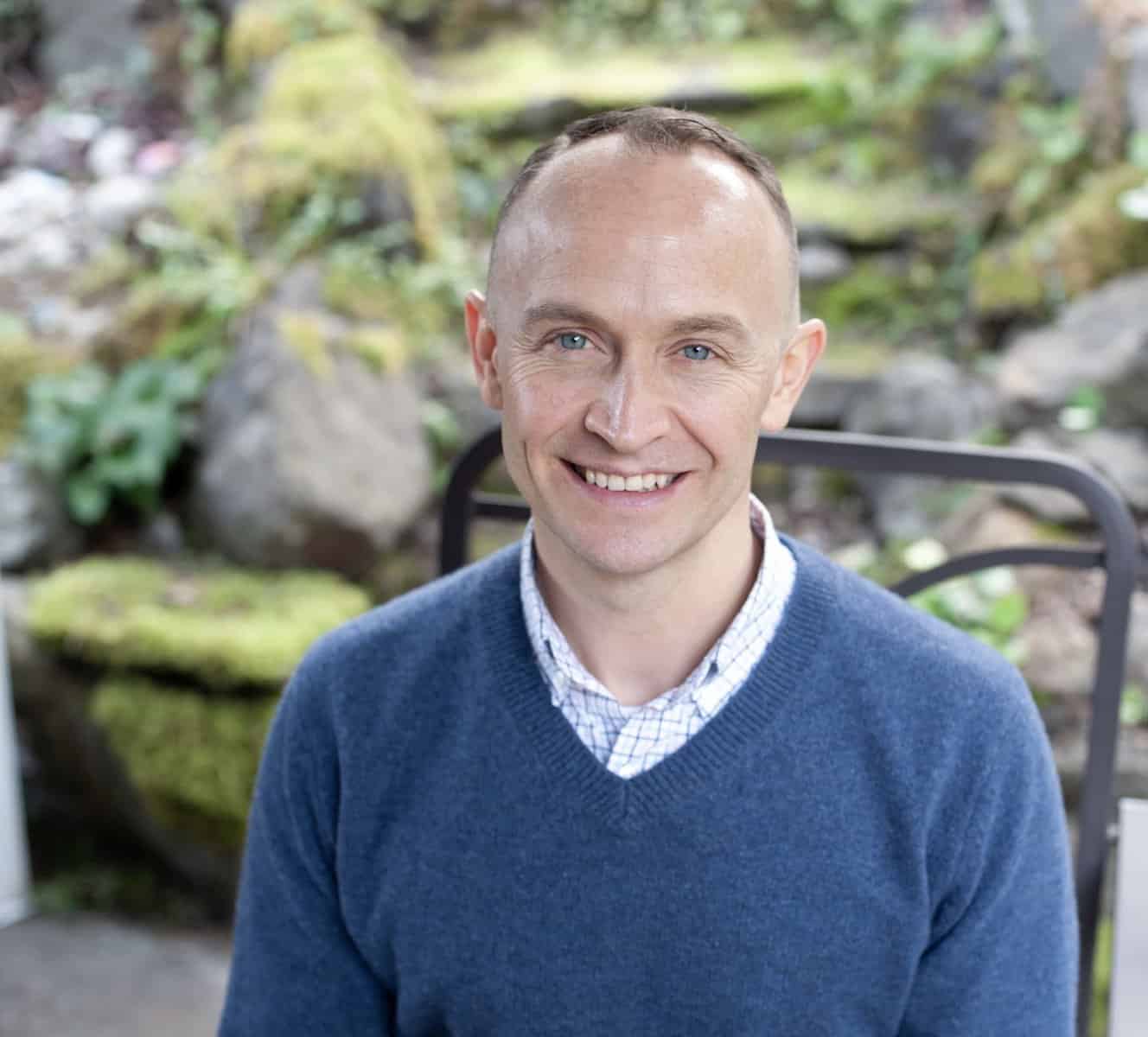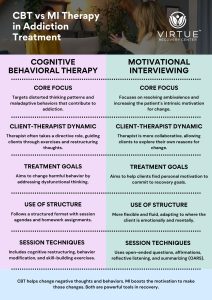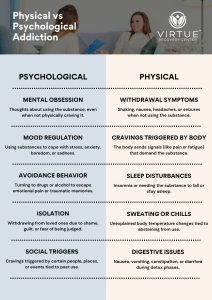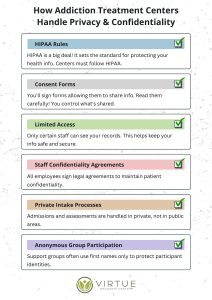Identity plays a pivotal role in the addiction recovery process, especially for individuals within the LGBTQIA+ community. This article explores the unique challenges faced by LGBTQIA+ individuals in addiction treatment and the importance of creating inclusive and affirming environments that support their recovery journey. Understanding these needs and tailoring addiction treatment programs to address both identity and mental health is essential for fostering lasting recovery.
Key Takeaways
- Identity significantly impacts the recovery process, making it crucial to provide tailored, inclusive, and affirming addiction treatment programs for LGBTQIA+ individuals.
- Safe and supportive environments are essential for addressing the unique challenges of discrimination, stigma, and mental health issues often faced by LGBTQIA+ individuals.
- Community and peer support play a vital role in fostering a sense of belonging and aiding in long-term recovery.
Introduction
Addiction recovery is a deeply personal journey, and for individuals within the LGBTQIA+ community, this journey is often shaped by unique challenges related to identity, discrimination, and mental health. The intersection of identity and addiction treatment is critical in understanding how to support LGBTQIA+ individuals in their recovery journey effectively. Tailoring addiction treatment programs to meet the specific needs of LGBTQIA+ individuals not only helps address substance use disorders but also fosters an inclusive and affirming environment that supports long-term recovery. If you or someone you know is struggling with addiction, Virtue Recovery Las Vegas is here to help. Contact us at 866-520-2861.
The Intersection of Identity and Addiction
Understanding Identity in Addiction Recovery
For LGBTQIA+ individuals, identity plays a significant role in how they experience and manage addiction. The challenges related to gender identity and sexual orientation often intersect with issues of substance use and addiction. Studies have shown that LGBTQIA+ individuals are at a higher risk of developing substance use disorders compared to the general population. This is mainly due to the unique stressors they face, such as discrimination, homophobia, transphobia, and stigma. These stressors can exacerbate mental health issues and lead to increased vulnerability to substance abuse as a coping mechanism.
Challenges Faced by LGBTQIA+ Individuals
LGBTQIA+ individuals often face unique challenges in their recovery journey that can complicate the treatment process. Discrimination and stigma can create barriers to accessing care, while societal pressures and internalized homophobia or transphobia can lead to feelings of isolation and hopelessness. These challenges not only impact the individual’s mental health but also hinder their ability to engage fully in the recovery process. Addressing these issues is crucial for creating effective addiction treatment strategies.
Creating Safe and Supportive Environments
The Importance of Safe Spaces in Recovery
One of the most critical aspects of addiction treatment for LGBTQIA+ individuals is the creation of safe and supportive environments. Creating safe spaces within treatment centers allows individuals to express their true selves without fear of judgment or discrimination. These spaces foster community and belonging, which are essential for healing and recovery. When individuals feel accepted and supported in their identity, they are more likely to engage in treatment and build the resilience needed for lasting recovery.
Inclusive and Affirming Addiction Treatment
An inclusive and affirming environment is vital for addressing the needs of LGBTQIA+ individuals in recovery. Addiction treatment programs designed to provide inclusive treatment recognize the importance of validating each person’s identity. This includes using correct pronouns, understanding the specific challenges faced by LGBTQIA+ individuals, and offering specialized services that address both mental health and addiction. An affirming approach can significantly improve treatment outcomes by ensuring individuals feel seen, heard, and respected throughout their recovery.
Tailoring Addiction Treatment for LGBTQIA+ Individuals
Customized Treatment Plans for Unique Challenges
Every individual’s recovery journey is unique, and for LGBTQIA+ individuals, their treatment plan must be tailored to their specific needs. Tailoring addiction treatment involves recognizing the interplay between mental health conditions and substance use and how one’s identity influences these. Treatment centers should offer a holistic approach that includes counseling, therapy, and support groups designed to address the unique challenges faced by LGBTQIA+ individuals. This approach helps build effective and relevant coping mechanisms for the individual’s experiences.
Addressing Mental Health and Addiction with Inclusive Treatment
Mental health and addiction are closely linked, especially in the LGBTQIA+ community, where individuals may struggle with anxiety, depression, and trauma related to their identity. Mental health issues such as these are often exacerbated by experiences of discrimination and stigma, making it crucial that addiction treatment addresses both mental health and substance use. A comprehensive treatment program should integrate mental health services, including therapy sessions that focus on trauma, coping strategies, and building self-esteem, to ensure a well-rounded approach to recovery.
The Role of Community and Peer Support
Fostering a Sense of Community
Community support is a cornerstone of effective addiction recovery, particularly within the LGBTQIA+ community. Peer support is pivotal in fostering a sense of belonging and helping individuals feel supported in their recovery efforts. Being part of a recovery community where one’s identity is respected and affirmed can make a significant difference in recovery. Support groups specifically for LGBTQIA+ individuals can provide a space where members share their experiences, challenges, and successes, creating a network of support that encourages lasting recovery.
Support Groups and Recovery Programs at an Inclusive Treatment Center
Joining support groups that are designed for LGBTQIA+ individuals can significantly enhance the recovery process. These groups offer a safe environment where members can discuss issues related to addiction, mental health, and identity without fear of judgment. Programs that are tailored to meet the needs of LGBTQIA+ individuals provide not only emotional support but also practical advice on navigating recovery in a world that can often be hostile to their identities. Such programs are crucial in helping individuals overcome addiction and build healthier, more fulfilling lives.
Overcoming Stigma and Discrimination in Recovery
The Impact of Stigma and Discrimination
Stigma and discrimination remain significant barriers for LGBTQIA+ individuals in recovery. These negative experiences can lead to feelings of shame and unworthiness, which can, in turn, fuel substance use as a means of coping. Overcoming these barriers requires a concerted effort to educate both the public and healthcare providers about the importance of treating LGBTQIA+ individuals with dignity and respect. By reducing stigma and promoting acceptance, we can create a more supportive environment for individuals struggling with addiction.
Building Resilience and Coping Mechanisms
Developing effective coping mechanisms is essential for LGBTQIA+ individuals to navigate the challenges of addiction and recovery. This includes learning to manage stress, handle discrimination, and build a positive sense of self. Therapy and counseling focusing on building resilience can empower individuals to face these challenges head-on and emerge stronger in their recovery journey. By fostering a supportive environment that affirms their identity, individuals can develop the skills to maintain long-term sobriety.
Conclusion
Identity is a central factor in the addiction recovery process for LGBTQIA+ individuals. Addiction treatment programs that recognize and affirm the unique challenges faced by this community are essential for fostering successful recovery. By creating inclusive and safe spaces, addressing both mental health and substance use and providing strong community support, treatment centers like Virtue Recovery Las Vegas can play a pivotal role in helping LGBTQIA+ individuals overcome addiction and build healthier, more fulfilling lives. If you or someone you know is struggling with addiction, don’t hesitate to seek help. Contact Virtue Recovery Las Vegas at 866-520-2861 for support on your recovery journey.
FAQs
Why is it important to consider identity in addiction treatment?
Considering identity in addiction treatment is crucial because LGBTQIA+ individuals face unique challenges, such as discrimination and stigma, that can impact their recovery. Tailoring treatment to address these challenges can lead to more effective outcomes.
How do safe spaces contribute to successful recovery in LGBTQIA+ individuals?
Safe spaces provide an environment where LGBTQIA+ individuals can feel secure and accepted, free from judgment or discrimination. This sense of security fosters trust, allowing individuals to engage in recovery fully.
What challenges do LGBTQIA+ individuals face in addiction recovery?
LGBTQIA+ individuals often face challenges such as discrimination, stigma, homophobia, transphobia, and mental health issues, all of which can complicate the recovery process and increase the risk of substance abuse.
How can addiction treatment programs be tailored to the needs of LGBTQIA+ individuals?
Addiction treatment programs can be tailored by incorporating affirming practices, addressing mental health issues related to identity, and providing support groups that cater specifically to LGBTQIA+ individuals. This personalized approach helps meet the unique needs of the community.
What role does community support play in the recovery process for LGBTQIA+ individuals?
Community support is vital in the recovery process. It provides a network of peers who understand and share similar experiences. This support fosters a sense of belonging and helps individuals feel validated and encouraged throughout their recovery.
What is the recovery model for addiction?
The recovery model for addiction focuses on a holistic, person-centered approach that emphasizes long-term wellness, self-management, and the development of a meaningful life without substance use. It involves medical treatment, peer support, and behavioral therapies.
What is the social identity model of recovery?
The social identity model of recovery highlights the importance of social connections and community in the recovery process. Adopting a new, positive social identity, often through support groups, can help individuals recover by fostering a sense of belonging and purpose.
What are the three C’s model of addiction?
The three C’s model of addiction refers to the concepts of Compulsion, Control, and Consequences. This model describes how addiction involves a compulsive urge to use substances, a loss of control over use, and continued use despite negative consequences.
What are SAMHSA’s 4 dimensions of recovery?
SAMHSA’s 4 dimensions of recovery are Health, Home, Purpose, and Community. These dimensions highlight the need for overall well-being, stable living conditions, meaningful daily activities, and strong social support systems in recovery.
What are some examples of safe spaces?
Safe spaces are environments where individuals, especially those from marginalized communities, feel accepted and free from judgment or discrimination. Examples include LGBTQIA+ support groups, inclusive therapy centers, and community organizations that offer affirming environments.
What challenges do LGBTQIA+ individuals face in addiction treatment?
LGBTQIA+ individuals may face challenges such as discrimination, lack of culturally competent care, and social stigma in addiction treatment. These barriers can make it harder for them to access and benefit from recovery services.
Why is cultural competency critical in addiction treatment?
Cultural competency ensures that addiction treatment is respectful and responsive to individuals’ diverse backgrounds and needs. It helps provide more effective and personalized care, which is crucial for the success of recovery, especially for marginalized groups.
Why is the LGBTQIA+ student population at higher risk of substance misuse and addiction?
LGBTQIA+ students are at higher risk of substance misuse due to factors such as discrimination, social isolation, and mental health challenges like depression and anxiety. These stressors can lead to higher rates of substance use as a coping mechanism.
How can I support a loved one who is LGBTQIA+ and struggling with addiction?
Support your loved one by offering understanding, compassion, and a nonjudgmental space for them to share their struggles. Encourage them to seek help from LGBTQIA+-affirming treatment programs and advocate for their needs throughout their recovery journey.
Resources
https://nida.nih.gov/research-topics/lgbtqi-people-and-substance-use
https://www.ncbi.nlm.nih.gov/pmc/articles/PMC10278416/
https://www.healthline.com/health/why-is-substance-abuse-worse-in-lgbtq-community













